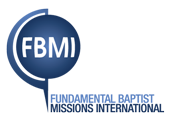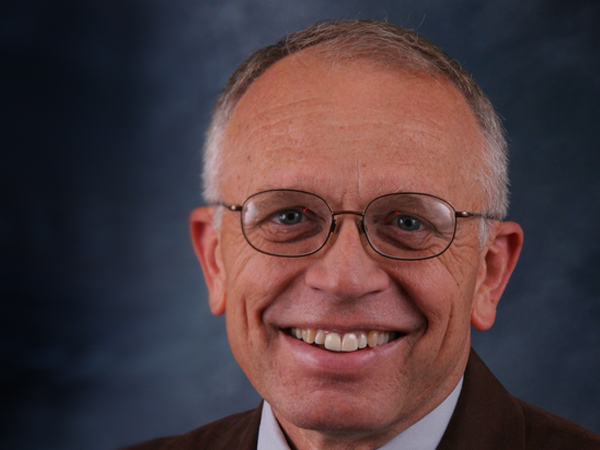Contact: In missionary service, our divine direction is clarified in the Great Commission, so this is our priority. Yet we know that the Bible is the God-fearing individual’s source for knowledge, wisdom, and understanding. Paul said, “For I have not shunned to declare unto you all the counsel of God.” (Acts 20:27) One aspect of God’s instruction is the stewardship of our resources, including our health. We need to know how to be wise medically, and we likewise need to be ready to help those we serve in this area as they grow to spiritual maturity (Acts 20:28-32). To neglect this balance personally is to needlessly reduce our influence and the effectiveness of our ministries. To neglect this balanced instruction in our ministry to others is to give them a distorted and incomplete foundation for life.
1. Spiritual work is the most important work. All ministries must yield to divine priorities.
a. The eternal is more important than the temporal. We don’t believe in a “social Gospel.” Nevertheless, the temporal is definitely important.
b. Jesus is our supreme example.
i. He fully obeyed the will of His Father. In the process, He responded with compassion when people were sick, healing many of their physical afflictions.
ii. He took care of His temporal body, sleeping, resting, eating, and drinking that which was healthy.
iii. After He received His glorified body, He still ate with the disciples.
c. Paul’s life and ministry also provide a helpful example, as he dealt with his own “thorn in the flesh” and as he mentored others (I Timothy 5:23). It appears that Luke, as a physician, was significantly helpful to Paul with regard to his health (Colossians 4:14).
2. The work of the ministry is a wondrously productive work that is worthy of our greatest effort
(I Corinthians 16:15-16). When ministry leadership is scripturally balanced and complete, membership thrives. When there is an imbalance, leaders and followers suffer. Health is part of the mix.
a. A call to the ministry is a call to a life of personal growth and learning. “A call to serve is a call to prepare.” Thorough preparation includes a growing understanding of health.
b. A call to the ministry is a call to a life of service. My grandfather’s motto as a pastor was “Saved to serve.” As Pastor Wilkerson says, “We don’t want to sit, soak, and sour.” Any review of prayer requests would confirm the reality that people focus on all things related to health and sickness. We need to be prepared to help them.
c. A call to the ministry is a call to be complete. We don’t want those we serve to lack anything that God has for them. But to do so, we need a full complement of “tools in the toolbox.” Health affects many aspects of our lives.
d. A call to the ministry is a call to humility. We desperately need God’s grace in our lives. With this same desperation, we seek to be a channel of this same grace to “our people.” Humility is where we have to live for this to become a reality (James 4:6).
e. A call to the ministry is a call to a sober, studious, and attentive life. There is no greater example than that of health. As the medical tools at our disposal have multiplied, so has medical understanding. Unfortunately, misinformation has likewise mushroomed, so most people are confused, skeptical, and even bitter. Every sickness becomes a driving force to cast blame: “Why didn’t ‘they’ tell me?!”
f. And finally, a call to the ministry is a call to be a good example. Many sayings express the truth that “Our talk talks, but our life shouts!”
3. An introduction to considerations that can make a great impact for good in our lives
a. A wise foundation in health
i. Basic “health literacy,” an understanding of how the body is made and functions and what happens in injury and disease
ii. The capacity to glean helpful information and wise counsel from professionals and other sources in the field of health
iii. The ability to then distinguish between valid and helpful medical advice and that which is inaccurate or even harmful
iv. We recommend advice from authorities that have a reputation to preserve, such as the Mayo Clinic, the Cleveland Clinic, Johns Hopkins, The National Institutes of Health (NIH), etc.
b. Safe food and water
i. What is inexpensive is not always the best choice when it comes to our food.
ii. We recommend sources of nutritional information that do not have commercial interest (a product to sell) or a blatantly liberal outlook and agenda. I would recommend something like an ongoing subscription to the “Environmental Nutrition” newsletter, which addresses all aspects of nutrition effectively.
c. Consistent and thorough medical care
i. I believe everyone should have a family doctor and a family dentist in the U.S.A.
ii. This is especially true in the case of missionaries. It requires a lot more wisdom to live safely overseas, as the “patient” plays a much greater role in medical decisions. The home doctor and dentist become priceless resources in times of trouble. Not every doctor or dentist is willing, but many are.
iii. This care involves preventative care, such as immunizations and medications to prevent disease.
d. An active lifestyle
i. Activity is beneficial in many ways, both preventing and helping to treat a number of common afflictions.
ii. One diabetes doctor expresses it this way: “Motion is lotion.” We don’t need to be sports stars to benefit. Any movement helps, and, within reason, the more the better.
iii. Walking is the best and safest activity. It is low-impact, requires no special equipment, can be done alone or with others, and is not dependent on the weather or other such circumstances. Those Northerners who walk with their friends between 8:00 and 10:00 in the morning in the malls illustrate that “Where there is a will, there’s a way.”
e. First aid and CPR training and equipment, including first aid kits
i. It is not a question if accidents or sickness will occur, but when. Illness and injury are a part of life.
ii. Preparation in the form of training, equipment, and materials provides great peace of mind as a family and in the ministry. “We don’t want it to happen, and we will work to keep it from happening. But if it should happen, we are ready.”
iii. We encourage all missionaries to become First Aid and CPR certified. We encourage the preparation and use of first aid kits. Good intentions alone are not enough. We teach from the ACEP First Aid Manual (published by DK).
f. Country-specific concerns
i. We believe that every missionary should become an expert with regard to all aspects of the country where they are called to serve. “Chance favors the prepared mind.” It doesn’t honor God to be willingly ignorant. Biblical faith is based on evidence.
ii. Helpful sources
1. Travel related, country- and region-specific, health advice: https://wwwnc.cdc.gov/travel
2. General information: https://www.cia.gov/library/publications/the-world-factbook/
3. Current information for U.S. citizens who travel or live abroad (including travel alerts and warnings, passport and visa information, etc.): https://www.state.gov/travel/
j. Hosting guests



